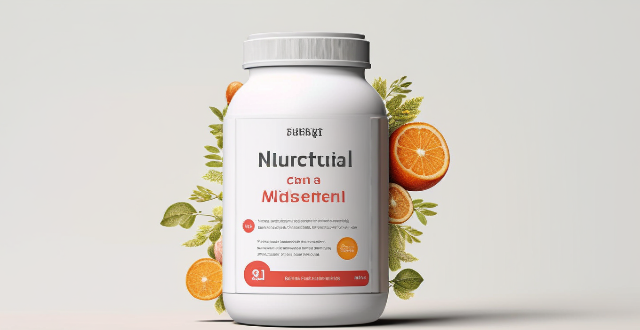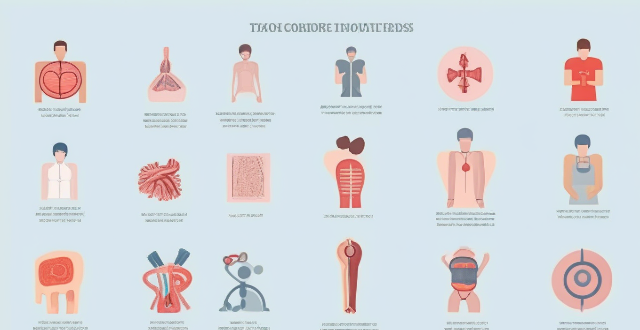Muscle Sports

Can sports supplements help with muscle recovery after workouts ?
Can Sports Supplements Help with Muscle Recovery After Workouts? Physical exercise and workouts are essential for maintaining a healthy lifestyle, but they can also lead to muscle fatigue and soreness. Many athletes and fitness enthusiasts turn to sports supplements to aid in muscle recovery after workouts. But do these supplements really work? Let's explore the topic in detail. What are Sports Supplements? Sports supplements are dietary products designed to enhance athletic performance, improve physical health, and support recovery from exercise. They come in various forms, including powders, pills, and liquids, and can be consumed before, during, or after workouts. Types of Sports Supplements - Protein Powders: Help in muscle repair and growth. - Creatine: Boosts energy production in muscles. - Branched-Chain Amino Acids (BCAAs): Support muscle building and recovery. - Glutamine: Aids in muscle recovery and immune function. - Omega-3 Fatty Acids: Reduce inflammation and promote heart health. - Multivitamins/Minerals: Support overall health and wellness. How Do Sports Supplements Help with Muscle Recovery? - Protein Powders: Consuming protein powders after a workout can help replenish depleted amino acids, leading to faster recovery times. - Creatine: Increases the availability of phosphocreatine, which helps regenerate ATP more quickly during high-intensity exercises, reducing muscle fatigue and aiding in recovery. - BCAAs: Consuming BCAA supplements before or during workouts can reduce muscle damage and speed up recovery processes. - Glutamine: Supports muscle recovery by helping maintain cellular volume and preventing muscle breakdown. It also supports immune function, which is important for overall health and recovery. - Omega-3 Fatty Acids: Have anti-inflammatory properties that can help reduce muscle soreness and stiffness after workouts. They also support heart health, which is crucial for athletes who engage in cardiovascular exercises. - Multivitamins/Minerals: While not directly related to muscle recovery, consuming multivitamins or minerals can support overall health and wellness, which indirectly aids in recovery processes. Are Sports Supplements Safe? While sports supplements can be beneficial for some individuals, it's important to note that they are not regulated by the Food and Drug Administration (FDA). This means that their safety and effectiveness may vary between brands and products. It's always best to consult with a healthcare professional before starting any supplement regimen. Additionally, relying solely on supplements without proper nutrition and rest can be counterproductive. A balanced diet, adequate sleep, and proper hydration are still key components of effective muscle recovery.

How do sports nutrition supplements affect muscle recovery after a workout ?
Sports nutrition supplements can significantly support muscle recovery post-workout by providing essential nutrients. Protein supplements like whey and casein replenish amino acids, while carbohydrate supplements such as BCAAs and beta-alanine reduce soreness and fatigue. Other nutrients, including creatine, glutamine, and vitamins/minerals, further enhance recovery. A structured supplementation routine, tailored to individual needs, can optimize muscle recovery and athletic performance.

How do sports monitoring systems analyze muscle activity and fatigue ?
Sports monitoring systems analyze muscle activity and fatigue by employing various technologies and methodologies, including: 1. Electromyography (EMG) to measure electrical muscle activity and detect fatigue indicators. 2. Heart rate monitoring to track intensity, recovery, and heart rate variability (HRV). 3. Accelerometry to track motion patterns and assess fatigue through changes in movement quality. 4. Force plates and pressure mats for measuring ground reaction forces and load distribution. 5. Blood lactate testing as a metabolic indicator of anaerobic metabolism and fatigue. 6. Perception-based scales like Ratings of Perceived Exertion (RPE) for subjective feedback on exertion levels. 7. Sleep tracking to monitor sleep duration, quality, and rest disruptions. 8. Environmental monitoring to account for external conditions affecting performance and fatigue. These systems provide valuable insights into an athlete's performance, enabling coaches and athletes to adjust training regimens, prevent overtraining, and enhance overall sports performance.

Can engaging in sports help with weight management ?
Engaging in sports can help with weight management by increasing calorie burn, improving metabolism, increasing muscle mass, reducing the risk of obesity-related diseases, and providing mental health benefits. However, a healthy diet and lifestyle habits are also essential for long-term success.

How does sports affect the physical development of adolescents ?
Sports during adolescence positively impact physical development by enhancing muscular strength, improving bone density, promoting coordination and balance, managing body composition, benefiting cardiovascular health, and fostering mental well-being. Additionally, they encourage active lifestyle habits and social interaction, setting a foundation for lifelong health and wellness.

How should I incorporate sports nutrition supplements into my daily routine for optimal results ?
The text provides a comprehensive guide on how to incorporate sports nutrition supplements into your daily routine for optimal results. It starts with understanding the basics of sports nutrition and assessing individual goals and needs. It then discusses different types of supplements, their timing of intake, and how to incorporate them into various parts of the day. The text emphasizes the importance of monitoring and adjusting supplement use based on personal experiences and advises consulting with a professional for personalized advice.

In what ways do factors like body composition and flexibility affect sports biomechanics ?
In sports biomechanics, body composition and flexibility are crucial factors affecting performance. Increased muscle mass and a high strength-to-weight ratio enhance power in weightlifting and sprinting. A lower fat percentage improves aerodynamics and reduces energy expenditure in endurance activities. Higher bone density offers better support in impact-heavy sports. Greater flexibility increases the range of motion, preventing injuries and improving efficiency in rapid movements. Optimal body composition and flexibility can significantly improve an athlete's performance and reduce injury risk.

What role does genetics play in determining an individual's potential for elite sports performance ?
Genetics plays a significant role in determining an individual's potential for elite sports performance. Physical attributes, physiological characteristics, and psychological traits all contribute to success in sports. Height and body build, muscle composition and fiber type, oxygen uptake and energy production, recovery and injury resistance, motivation and mental toughness, and cognitive abilities are all influenced by genetics. However, environmental factors such as training, nutrition, and coaching also play a crucial role in an athlete's development and success.

How can sports education help prevent injuries and promote safe exercise habits ?
Sports education is crucial for preventing injuries and promoting safe exercise habits. It emphasizes proper warm-up and cool-down exercises, correct technique and form, safety equipment and gear, stretching and flexibility, hydration and nutrition, and rest and recovery. By providing athletes with the necessary knowledge, skills, and attitudes, sports education helps them avoid common mistakes that lead to injuries and develop healthy exercise routines.

What are some effective warm-up routines for preventing sports injuries ?
Effective Warm-Up Routines for Preventing Sports Injuries: A proper warm-up routine prepares your body for the demands of the sport or exercise by increasing blood flow, raising your heart rate, and loosening up your muscles and joints. Dynamic stretching, light aerobic exercise, sports-specific movements, foam rolling, and cooling down are effective warm-up routines that can help prevent sports injuries.

How do I prevent muscle soreness after a long run ?
To prevent muscle soreness after a long run, you should warm up properly, stretch your muscles, drink plenty of water, eat a balanced diet, and rest between workouts. Following these tips can help reduce the risk of injury and improve performance in future runs.

How does a warm-up affect performance in sports ?
Warming up before sports activities is crucial for enhancing performance and preventing injuries. A proper warm-up increases blood flow to the muscles, reduces injury risk, improves coordination and reaction time, and provides mental preparation. There are different types of warm-ups, including general warm-up, specific warm-up, and dynamic stretching. Incorporating these warm-up activities can optimize an athlete's performance and minimize the risk of injuries during competition.

How do sports supplements work ?
Sports supplements are designed to enhance athletic performance, improve recovery, and support overall health by providing essential nutrients. They work in various ways: 1. **Energy Production**: Carbohydrates replenish glycogen stores, delay fatigue, and maintain performance levels; Creatine increases short-term power and strength. 2. **Muscle Growth and Repair**: Protein supports muscle recovery and building; BCAAs reduce muscle soreness and improve endurance. 3. **Hydration and Electrolyte Balance**: Electrolytes prevent dehydration, cramping, and maintain muscle function. 4. **Joint Health and Recovery**: Glucosamine and Chondroitin may reduce joint pain; Omega-3 fatty acids reduce inflammation. 5. **Performance Enhancement**: Caffeine improves endurance and focus; Beta-alanine delays muscle fatigue. Supplements should complement a balanced diet and their use should be guided by healthcare professionals.

Can stretching after exercise prevent muscle soreness ?
Stretching after exercise can help reduce muscle soreness and improve flexibility, but it is important to wait for enough time, choose appropriate stretches, be mindful of pain, and use proper technique.

Can dehydration really cause muscle cramps during physical activity ?
Dehydration can lead to muscle cramps during physical activity due to loss of essential electrolytes and reduced oxygen supply to muscles. Signs of dehydration include thirst, dark urine, fatigue, dizziness, dry mouth, headache, and constipation. To prevent dehydration and muscle cramps, stay hydrated, eat a balanced diet rich in electrolytes, stretch before and after exercise, gradually increase intensity, and rest when needed.

How does sleep deprivation affect muscle recovery after workouts ?
Sleep is crucial for muscle recovery after workouts, as it allows the body to repair and rebuild damaged muscle tissue. Sleep deprivation reduces growth hormone production and protein synthesis, leading to inefficient muscle recovery. Strategies for improving sleep quality include establishing a consistent sleep schedule, creating a relaxing bedtime routine, avoiding screens before bed, getting plenty of exercise, and creating a comfortable sleeping environment. By prioritizing sleep, you can improve muscle recovery and overall health.

Can stretching before exercise help prevent sports injuries ?
Stretching before exercise is believed to prevent sports injuries by improving flexibility and range of motion, but its effectiveness is debated due to limited scientific evidence. While some studies suggest stretching may increase injury risk, many experts still recommend it as part of an exercise routine. To stretch safely, warm up first, hold stretches for at least 30 seconds, avoid bouncing, focus on major muscle groups, and listen to your body's signals.

What should I eat after a workout to build muscle
After a workout, it is important to provide the body with nutrients for muscle repair and growth. Protein-rich foods like chicken breast and Greek yogurt are essential for muscle growth. Complex carbohydrates like sweet potatoes provide sustained energy. Healthy fats from sources such as avocados and nuts help absorb vitamins. Staying hydrated with water is crucial for muscle function. A balanced diet with fruits, vegetables, and fiber supports long-term muscle health.

How can I prevent muscle soreness after a workout
Stretching, warm-up, hydration, nutrition, rest, massage, ice therapy, and avoiding overtraining are all important steps to help prevent muscle soreness after a workout.

What are the best sports nutrition supplements for enhancing athletic performance ?
The article discusses the importance of sports nutrition supplements in enhancing athletic performance. It highlights five key supplements that can help athletes improve their performance: 1. Protein Supplements: Essential for building and repairing muscles, protein supplements like whey, casein, and soy protein can support muscle growth, increase strength, and improve body composition. 2. Creatine Supplements: Popular among athletes for increasing muscle mass and improving performance during short, high-intensity exercise. Creatine also enhances recovery between workouts. 3. Beta-Alanine Supplements: An amino acid that increases muscle carnosine levels, beta-alanine can improve endurance capacity during high-intensity exercise, reduce fatigue, and enhance muscle strength and power. 4. Caffeine Supplements: A natural stimulant that can increase energy levels, reduce fatigue, improve mental focus, and enhance endurance capacity during prolonged exercise. 5. Multivitamins and Minerals Supplements: Important for overall health and well-being, multivitamins and minerals can help prevent nutrient deficiencies that could impair performance and enhance immune function and recovery from training. The article emphasizes the importance of choosing safe and effective supplements that meet the specific needs of an athlete and consulting with a healthcare professional or registered dietitian before starting any new supplement regimen.

What is the significance of compression garments in sports attire ?
Compression garments are tight-fitting clothes designed to provide a snug fit and exert pressure on the body. These garments offer numerous benefits that can enhance performance, recovery, and overall well-being in sports attire. Some of the key benefits include improved blood circulation, enhanced recovery, temperature regulation, support and stability, and psychological advantages. By promoting better blood flow, compression garments help to deliver more oxygen to working muscles, remove metabolic waste, reduce muscle vibration, and minimize inflammation and swelling after exercise. They also regulate temperature in both hot and cold environments, provide joint and muscle support, and boost confidence and mental preparation for athletes. Incorporating compression garments into sports attire can optimize performance and recovery, making them a valuable addition for athletes across various disciplines.

What role does muscle strength training play in preventing chronic diseases ?
Muscle strength training can help prevent chronic diseases such as heart disease, stroke, type 2 diabetes, and some types of cancer. It also has many benefits for physical and mental health, including improved cardiovascular health, weight management, better bone health, reduced risk of type 2 diabetes, enhanced mental health, increased self-esteem, improved physical function, lowered blood pressure, and cancer prevention. To get started with muscle strength training, it is important to start low and slow, mix up your routine, rest enough, stay hydrated, eat right, and get enough sleep. With dedication and consistency, you can achieve great results!

What are the best exercises for building muscle at the gym ?
The article discusses the best exercises for building muscle at the gym, including free weights, machines, and bodyweight exercises. Free weight exercises like squats, deadlifts, and bench press target multiple major muscle groups for overall strength and muscle growth. Machine exercises such as leg press, lat pulldown, and seated row allow for isolation of specific muscles while still allowing heavy lifting. Bodyweight exercises including push-ups, pull-ups, and squat jumps require no equipment and can be done anywhere for convenient muscle building.

Is it necessary to stretch every muscle group after a workout ?
Stretching after a workout is often considered an essential part of any exercise routine. It helps in improving flexibility, reducing muscle soreness, and preventing injuries. However, the question remains: is it necessary to stretch every muscle group after a workout? Let's delve into this topic and explore the benefits and considerations associated with post-workout stretching.### Importance of Post-Workout Stretching Improved Flexibility Stretching after a workout can help maintain and improve flexibility over time. When muscles are warmed up from the exercise, they become more pliable, making it easier to stretch them. Regular stretching can lead to increased range of motion and better overall flexibility. Reduced Muscle Soreness Stretching can help reduce muscle soreness that may occur after a strenuous workout. By elongating the muscles, stretching promotes blood flow, which aids in the removal of lactic acid and other waste products that contribute to muscle soreness. Injury Prevention Stretching can also play a role in injury prevention. By increasing flexibility and range of motion, stretching can help reduce the risk of strains, sprains, and other injuries that may occur during physical activity.### Considerations for Post-Workout Stretching Not All Muscles Need to Be Stretched While stretching is generally beneficial, it's not necessary to stretch every muscle group after every workout. The focus should be on the muscles that were primarily engaged during the exercise session. For example, if you completed a lower body workout, it would be more beneficial to stretch your legs rather than your arms. Quality Over Quantity It's important to prioritize the quality of your stretches over the quantity. Performing a few well-executed stretches is more effective than rushing through multiple stretches without proper form or technique. Take the time to hold each stretch for at least 15-30 seconds, ensuring that you feel a gentle stretch without any pain or discomfort. Listen to Your Body Your body will provide clues about which muscles need stretching. If you experience tightness or stiffness in a particular muscle group, it's a good idea to focus on stretching those areas. Conversely, if a muscle group feels loose and relaxed, there may be no need to stretch it extensively.### Conclusion In conclusion, while stretching every muscle group after a workout is not strictly necessary, incorporating stretching into your post-workout routine can offer numerous benefits. By focusing on the muscles that were heavily engaged during your exercise session and prioritizing quality over quantity, you can improve flexibility, reduce muscle soreness, and potentially prevent injuries. Remember to listen to your body and adjust your stretching routine accordingly for optimal results.

How does exercise affect muscle growth and repair at a cellular level ?
Exercise stimulates protein production for muscle growth and repair, increases satellite cells for new muscle fibers, boosts blood flow for nutrient delivery and waste removal, and promotes the release of growth factors like IGF-1.

Is it possible to build muscle with office-friendly exercises ?
In today's fast-paced world, many people spend a significant portion of their day sitting at a desk. This sedentary lifestyle can lead to various health problems, including muscle loss. However, the good news is that it is possible to build muscle with office-friendly exercises. In this article, we discussed some effective exercises that can be done in an office setting, including bodyweight exercises like push-ups, squats, and lunges, as well as resistance band exercises like bicep curls, tricep dips, and shoulder press. By incorporating these exercises into your routine, you can improve your overall fitness and health while sitting at your desk all day.

What kind of foods should I eat to aid in muscle recovery
Eating a balanced diet that includes carbohydrates, protein, healthy fats, water, and vitamins and minerals is essential for muscle recovery after exercise. Complex carbohydrates provide energy for muscles during recovery, while protein helps repair and grow them. Healthy fats support overall health and reduce inflammation. Drinking enough water flushes out toxins and maintains a healthy fluid balance in the muscles. Vitamins and minerals, such as vitamin C, vitamin D, and iron, are also important for muscle function and recovery.

What are the best exercises for sports recovery ?
The text discusses the importance of sports recovery and suggests various exercises to aid in this process. The exercises include stretching, foam rolling, light cardiovascular exercise, and yoga. Stretching helps increase blood flow, reduce muscle tension, and improve flexibility. Foam rolling relieves muscle tightness and soreness by applying pressure to specific areas of the body. Light cardiovascular exercise increases blood flow and promotes recovery. Yoga improves flexibility, reduces stress, and promotes relaxation while also improving balance and stability. The author suggests several specific exercises for each category to help athletes recover from their workouts or competitions.